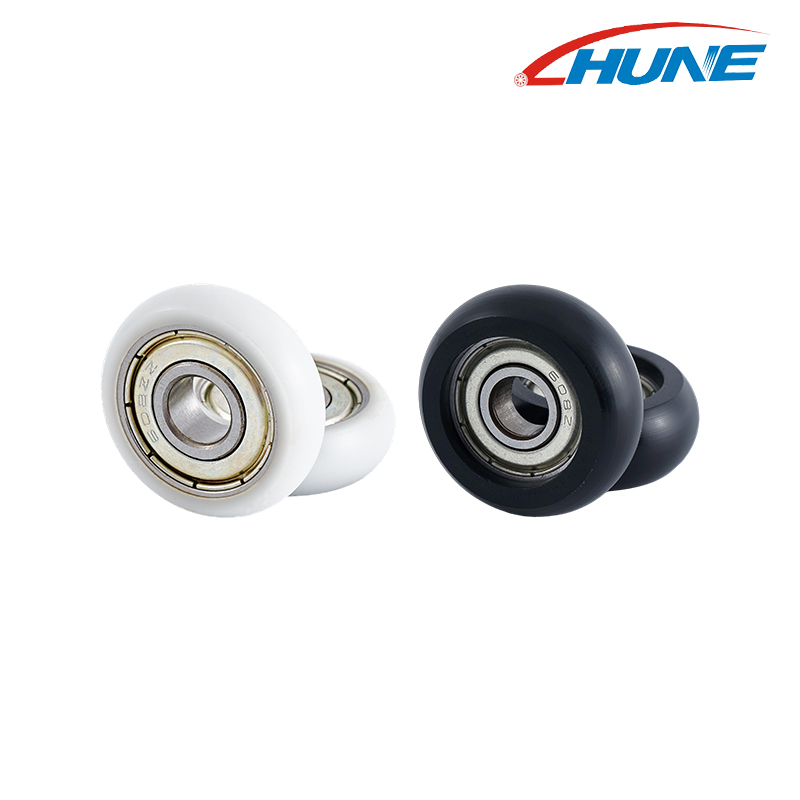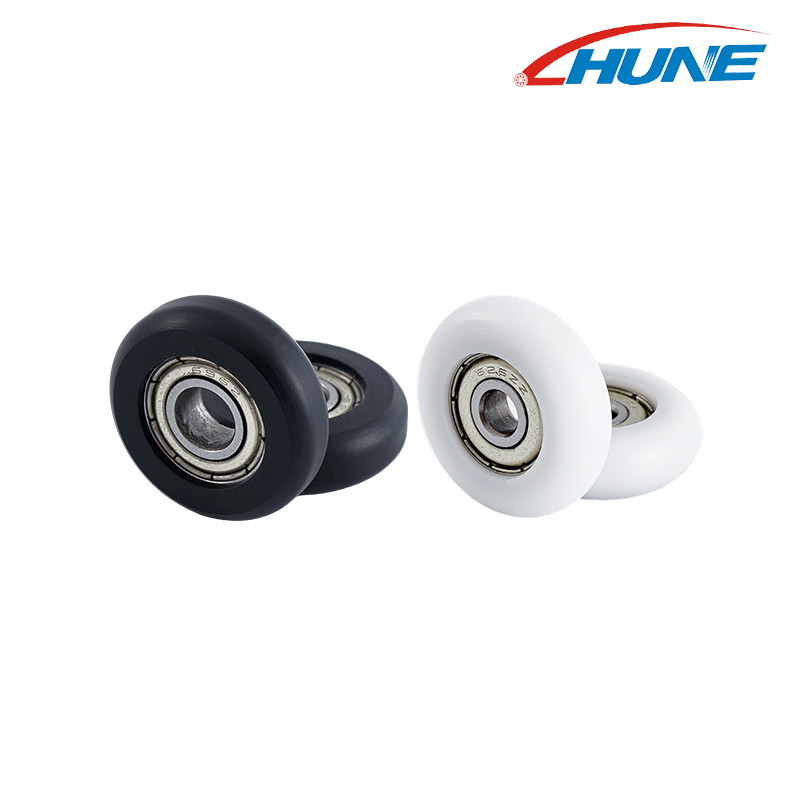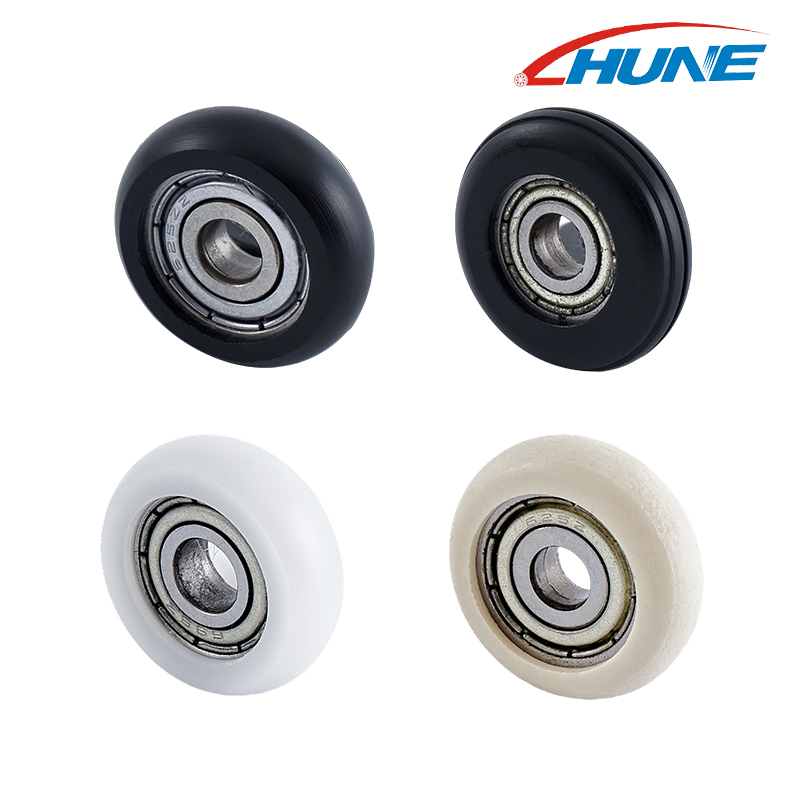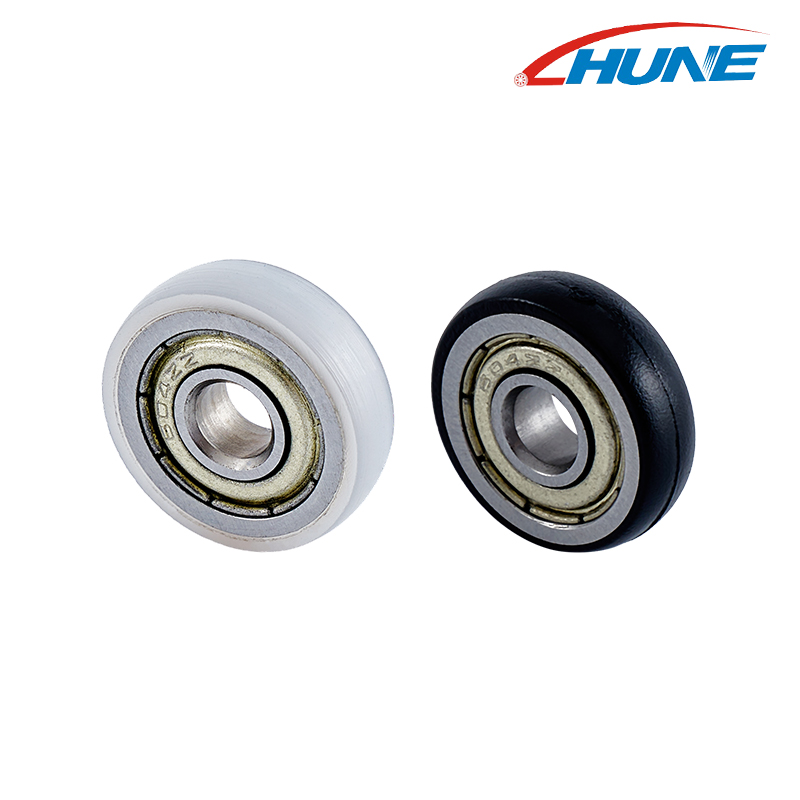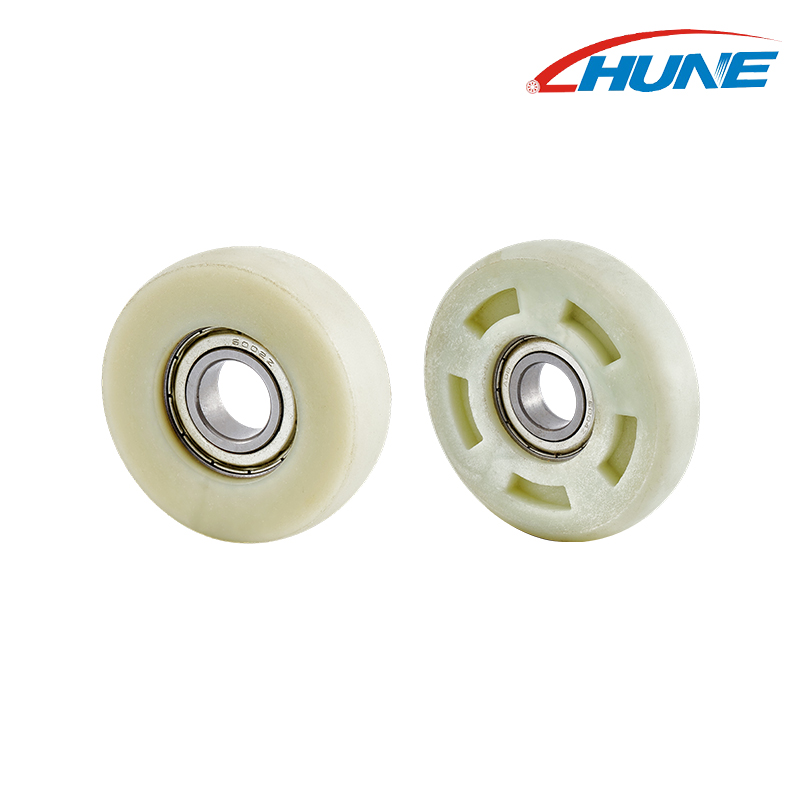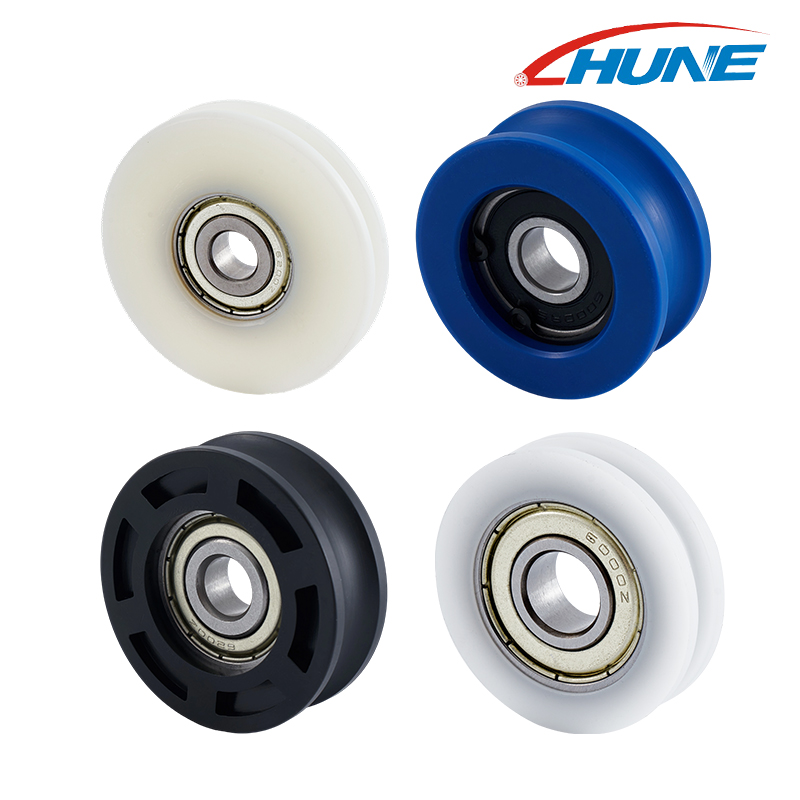Pulley wheels are crucial components in mechanical systems, playing a key role in the transmission of motion, power, and force. By efficiently guiding and controlling the movement of belts, cables, or ropes, they help reduce friction and increase system reliability. Pulley wheels are widely used across industries, from manufacturing to transportation, and understanding their functions, features, and material properties is essential for selecting the right pulley for your application.
Understanding Nylon Pulley Wheels
What Are Nylon Pulley Wheels?
Nylon pulley wheels are mechanical components made from high-strength, durable nylon, a thermoplastic material known for its lightweight properties, smooth surface, and excellent wear resistance. These pulleys are commonly used in systems where low noise, low friction, and reliable performance are essential.
Key Features and Benefits of Nylon Pulley Wheels
- Lightweight: Nylon reduces overall system weight, making it easier to handle and install.
- Low Friction: Smooth surfaces minimize resistance, extending the life of belts, ropes, and cables.
- Noise Reduction: Nylon absorbs vibrations, reducing operational noise in machinery or sliding systems.
- Corrosion Resistance: Nylon is naturally resistant to rust and chemicals, making it suitable for indoor and damp environments.
Common Applications of Nylon Pulley Wheels
- Sliding doors and windows for smooth, quiet operation
- Fitness equipment like cable-based machines
- Light-duty conveyor systems
- Home automation devices and small machinery
Load Capacity and Durability of Nylon Pulley Wheels
- Nylon pulleys are ideal for light to medium load applications. While they provide sufficient strength for most domestic and light industrial uses, they are less suitable for extremely heavy or high-torque systems compared to metal pulleys. Proper material selection ensures longevity and reliability under the intended load.
Noise Reduction and Friction Characteristics of Nylon Pulley Wheels
- The low-friction nature of nylon reduces wear on belts and cables, while its vibration-dampening properties significantly decrease operational noise. These characteristics make nylon pulleys perfect for environments where quiet, smooth movement is a priority.
Understanding Aluminum Pulley Wheels
What Are Aluminum Pulley Wheels?
Aluminum pulley wheels are made from aluminum alloys, offering a combination of strength, lightweight design, and corrosion resistance. They are widely used in industrial, automotive, and outdoor applications where durability and efficiency are critical.
Key Features and Benefits of Aluminum Pulley Wheels
- Lightweight yet Strong: Aluminum provides excellent strength-to-weight ratio for efficient motion transfer.
- Corrosion-Resistant: Naturally resistant to rust, suitable for both indoor and outdoor environments.
- Precision Machining: Aluminum can be CNC-machined to exact specifications for custom applications.
- Temperature Tolerance: Performs reliably in both high- and low-temperature conditions.
Common Applications of Aluminum Pulley Wheels
- Industrial conveyor systems
- Automotive components such as timing belts and engine drives
- Outdoor machinery exposed to environmental elements
- Marine and lifting equipment
Load Capacity and Durability of Aluminum Pulley Wheels
Aluminum pulleys can handle moderate to high loads, providing durability without excessive weight. They are particularly suitable for systems requiring a balance of strength, efficiency, and weight reduction.
Corrosion Resistance and Temperature Tolerance of Aluminum Pulley Wheels
Aluminum's corrosion resistance ensures long-term reliability in humid, marine, or outdoor environments, while its ability to withstand temperature variations makes it ideal for industrial and automotive applications. Protective coatings, like anodizing or powder coating, can further enhance durability.
Nylon vs. Aluminum Pulley Wheels: Features, Applications & Durability
|
Pulley Type |
Material & Overview |
Key Features |
Applications |
Load & Durability |
|
Nylon Pulley Wheels |
Durable, lightweight nylon; low friction, noise reduction, corrosion-resistant. |
Lightweight, low friction, quiet, corrosion-resistant |
Sliding doors, fitness equipment, light conveyors, home machinery |
Ideal for light to medium loads; less suited for heavy-duty systems. |
|
Aluminum Pulley Wheels |
Lightweight, strong, corrosion-resistant; suitable for industrial, automotive, and outdoor use. |
Strong, corrosion-resistant, precision-machined, temperature-tolerant |
Conveyors, automotive drives, outdoor machinery, marine equipment |
Handles moderate to high loads; coatings like anodizing extend lifespan. |
Material Comparison: Nylon vs Aluminum Pulley Wheels
Selecting the right material for pulley wheels is crucial for system performance, durability, and efficiency. Nylon and aluminum are two of the most commonly used materials, each offering distinct advantages depending on the application.
1. Durability: How Nylon and Aluminum Stand Up to Wear and Tear
- Nylon: Offers good durability for light to moderate load applications. It resists wear and abrasion under normal operating conditions but can deform under heavy or prolonged high-torque loads.
- Aluminum: Provides higher durability under medium to heavy loads. It is resistant to deformation and maintains structural integrity even in demanding industrial environments.
2. Weight: How the Weight Difference Affects Performance
- Nylon: Lightweight, which reduces the overall load on shafts and motors, enhancing system efficiency and making installation easier.
- Aluminum: Slightly heavier than nylon but still relatively light compared to steel. Its weight adds stability for high-speed or heavy-load applications without significantly increasing strain on machinery.
3. Noise Levels: Which Material Offers Quieter Operation?
- Nylon: Naturally absorbs vibrations, making it ideal for quiet operation. Perfect for residential, office, or light industrial settings where noise reduction is important.
- Aluminum: Metal-on-belt contact may generate more noise than nylon. While aluminum pulleys are durable, they may require lubrication or coatings to reduce operational sound.
4. Strength and Load Capacity: Which Material Can Handle Higher Loads?
- Nylon: Suitable for light to moderate loads. Best used in systems where weight reduction and low noise are more critical than maximum load capacity.
- Aluminum: Can handle higher loads than nylon without compromising structural integrity, making it ideal for medium-duty and industrial applications.
5. Temperature Resistance: Nylon vs Aluminum in Extreme Conditions
- Nylon: Performs well in normal operating temperatures but can soften or deform under high-heat conditions or prolonged exposure to extreme temperatures.
- Aluminum: Maintains performance across a wide range of temperatures, making it suitable for high-temperature industrial or outdoor applications.
6. Corrosion Resistance: How Nylon and Aluminum Perform in Harsh Environments
- Nylon: Naturally resistant to rust, moisture, and many chemicals, making it suitable for indoor or moderately damp environments.
- Aluminum: Offers excellent corrosion resistance, especially when anodized or coated, making it suitable for outdoor, marine, or humid conditions.
Nylon vs. Aluminum Pulley Wheels: Material Comparison and Key Features
|
Property |
Nylon |
Aluminum |
|
Durability |
Light to moderate loads |
Medium to heavy loads |
|
Weight |
Very light |
Slightly heavier, stable |
|
Noise |
Quiet |
May need lubrication |
|
Load Capacity |
Moderate |
High |
|
Temperature |
Normal temperatures |
Wide range |
|
Corrosion |
Rust and moisture-resistant |
Excellent, especially if coated |
Performance in Different Applications: Nylon vs Aluminum Pulley Wheels
Selecting the right pulley wheel material depends on the type of application, load requirements, and operating environment. Nylon and aluminum offer distinct advantages for specific uses.
1. Nylon for Sliding Systems
- Nylon pulley wheels are ideal for sliding doors, windows, and light-duty tracks. Their low-friction surfaces provide smooth and quiet motion, reducing noise and vibration. Nylon's lightweight design also minimizes wear on the track and supporting hardware, ensuring long-lasting performance in residential and office environments.
2. Aluminum for Heavy-Duty Applications
- Aluminum pulleys excel in heavy-duty systems that require high strength and durability. They can withstand higher loads without deforming and maintain reliable operation in industrial and outdoor environments. Aluminum is also resistant to corrosion, making it a preferred choice for marine equipment, lifting systems, and outdoor machinery.
3. Industrial Machinery
In conveyor systems and automated machinery, material selection impacts efficiency, load handling, and maintenance needs.
- Nylon: Performs well in light to medium-load conveyors, offering smooth, quiet operation and lower maintenance.
- Aluminum: Handles medium to heavy-load conveyors efficiently, providing durability and long-term reliability under demanding industrial conditions.
4. Sliding Doors & Windows
Choosing the right material for sliding doors and windows affects both efficiency and lifespan.
- Nylon: Best for residential or light commercial doors, where quiet operation and smooth sliding are priorities.
- Aluminum: Suitable for heavier doors or outdoor installations, offering strength, corrosion resistance, and long-term durability.
Nylon vs. Aluminum Pulley Wheels: Applications and Material Benefits
|
Application |
Nylon |
Aluminum |
|
Sliding Systems |
Lightweight, smooth, quiet; ideal for doors and windows. |
Strong, durable, corrosion-resistant for heavy-duty or outdoor use. |
|
Industrial Machinery |
Light to medium loads, quiet operation. |
Medium to heavy loads, durable under industrial conditions. |
|
Sliding Doors & Windows |
Light-duty, residential use. |
Heavy-duty, outdoor, long-lasting performance. |
Cost and Environmental Considerations: Nylon vs Aluminum Pulley Wheels
When selecting pulley wheels, understanding cost-effectiveness and environmental impact is essential. Nylon and aluminum offer different advantages depending on project requirements, maintenance needs, and sustainability goals.
Price Comparison
- Nylon Pulley Wheels: Generally lower upfront cost, making them ideal for light-duty applications and projects with tight budgets.
- Aluminum Pulley Wheels: Higher initial cost due to material strength and manufacturing complexity, suitable for heavy-duty and industrial systems.
Long-Term Costs
- Nylon: Requires minimal maintenance in low-load systems, but may need replacement sooner under high-load or harsh conditions.
- Aluminum: Offers long-lasting durability, reducing the need for frequent replacements and making it cost-effective in long-term or high-load applications.
Cost vs Performance
- Nylon: Provides good performance for applications where quiet operation and low weight are important. It is cost-efficient for residential and light industrial systems.
- Aluminum: Delivers higher strength, load capacity, and reliability, offering better long-term value despite higher upfront costs. Ideal for heavy-duty, industrial, or outdoor applications.
Sustainability
- Nylon: Nylon production uses petroleum-based polymers, which can contribute to environmental pollution. However, recycled or bio-based nylon options are available to reduce ecological impact.
- Aluminum: Aluminum is more environmentally friendly in terms of long-term sustainability, especially when using recycled material, reducing the need for energy-intensive primary production.
Recyclability
- Nylon: Limited recyclability; repeated recycling can degrade the material, though specialized processes exist for industrial recovery.
- Aluminum: Highly recyclable without losing strength or performance. Aluminum pulleys can be reused multiple times, making them an eco-conscious choice for industrial and outdoor systems.
Environmental Impact of Manufacturing
- Nylon: Manufacturing involves energy consumption and chemical processes that may release pollutants. Its environmental footprint is moderate but can be improved through recycled materials.
- Aluminum: Producing primary aluminum is energy-intensive, but recycling aluminum uses far less energy and significantly reduces environmental impact compared to new production.
Essential Maintenance Guide for Nylon and Aluminum Pulley Wheels: Cleaning, Lubrication, and Inspection
|
Task/Issue |
Nylon Pulley |
Aluminum Pulley |
|
Cleaning |
Remove dust/debris. |
Keep free of dirt. |
|
Lubrication |
Minimal, use compatible lubricants. |
Grease/oil bearings for high load. |
|
Inspection |
Check for cracks and wear. |
Check for dents and wear. |
|
Lifespan Tips |
Align properly, avoid overloading, inspect regularly & replace parts. |
Align properly, avoid overloading, inspect regularly & replace parts. |
|
Issues & Troubleshooting |
Wear, cracking, misalignment causes noise. |
Scratches, corrosion, and dry bearings cause noise. |
Maintenance and Lifespan of Nylon and Aluminum Pulley Wheels
Proper maintenance is key to maximizing the lifespan and performance of pulley wheels. Both nylon and aluminum require different care approaches based on their material properties.
1. Nylon Pulley Wheel Maintenance
- Cleaning: Regularly remove dust, dirt, and debris from the grooves and wheel surfaces to prevent wear.
- Lubrication: Nylon usually has low friction, so lubrication is often minimal. Use compatible lubricants to avoid chemical damage.
- Inspection: Periodically check for cracks, deformation, or excessive wear, especially under moderate to high loads.
2. Aluminum Pulley Wheel Maintenance
- Cleaning: Keep aluminum pulleys free of dirt, grime, and corrosive residues to maintain smooth operation.
- Lubrication: Apply appropriate grease or oil to bearings and shafts for high-load or high-speed systems.
- Inspection: Check for dents, surface wear, or misalignment. Protective coatings like anodizing can help prevent corrosion but should be monitored for damage.
3. Extending Lifespan for Both Types
- Ensure proper alignment of belts, cables, or ropes to reduce uneven wear.
- Avoid overloading pulley wheels beyond their rated capacity.
- Conduct regular inspections and replace worn components promptly.
- Maintain a clean and lubricated system, especially for high-speed or outdoor applications.
4. Common Issues and Troubleshooting
- Nylon Pulleys: May develop surface wear, cracking, or deformation under heavy or continuous loads. Low noise or vibration issues are often caused by misalignment or debris in the track.
- Aluminum Pulleys: Can suffer from surface scratches, dents, or corrosion if exposed to harsh conditions without proper care. Noise or operational resistance may occur if bearings are not lubricated.
Choosing the Right Pulley Wheel for Your Needs
Selecting the right pulley wheel is essential for ensuring efficient, reliable, and long-lasting operation in any system. The choice between nylon and aluminum depends on several factors, including load, speed, noise, and operating environment.
1. Key Factors to Consider
When choosing a pulley wheel, evaluate these critical factors:
- Load Capacity: Ensure the pulley can handle the system's weight and tension. Nylon is best for light to moderate loads, while aluminum is ideal for medium to heavy loads.
- Speed of Operation: High-speed systems may require aluminum pulleys for stability, while nylon works well in moderate-speed, low-friction setups.
- Noise Sensitivity: Nylon offers quiet operation, making it suitable for residential or office applications. Aluminum may require lubrication or coatings to reduce operational noise.
- Operating Environment: Consider exposure to moisture, heat, chemicals, or outdoor conditions. Aluminum provides better temperature tolerance and corrosion resistance, while nylon resists rust and works well in indoor or damp environments.
2. Matching Pulley Material to Applications
- Nylon Pulleys: Best for sliding doors, light conveyor systems, fitness equipment, and residential applications where quiet, smooth motion is essential.
- Aluminum Pulleys: Ideal for industrial machinery, heavy-duty conveyors, marine applications, and outdoor systems that require strength, durability, and corrosion resistance.
3. Expert Tips for Choosing Between Nylon and Aluminum
- Assess system load and speed requirements before selecting a material.
- Factor in noise levels for indoor or office use—nylon usually performs better.
- For harsh or outdoor environments, aluminum is preferable for longevity and durability.
- Consider long-term cost and maintenance: nylon may be cheaper initially, while aluminum often provides better value over time due to its durability.
Selecting the right pulley wheel material is crucial for optimal system performance. Choose nylon for quiet, lightweight, and low-load applications. Choose aluminum for heavy-duty, high-load, or outdoor systems that require strength and long-term reliability.
By carefully evaluating load, speed, noise, environment, and cost, you can ensure your pulley system operates efficiently, reliably, and safely for years to come.






 English
English  Español
Español  日本語
日本語 